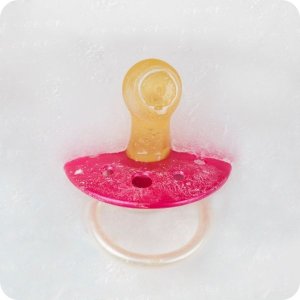Egg freezing is slowly becoming a discussion topic in Malta. Local fertility clinics are broaching the subject and offering the service and international companies are using egg freezing as an employee benefit in a bid to attract (and retain) female talent.
But what is egg freezing, and is it really an effective antidote to a ticking biological clock? In this article, we’ll go over all you need to know about egg freezing, who it’s for, the benefits and drawbacks, as well as the often-overlooked emotional element.
 What is egg freezing?
What is egg freezing?
Egg freezing is used to preserve a woman’s ability to get pregnant at a later time. Eggs harvested from the ovaries are frozen and stored, ready for use once you’re ready to start a family. Preserving your fertility is an option to look into if you’d love to have a family one day but are not ready to do so just yet, or if you haven’t found your ideal partner.
Why the rush?
Female fertility declines with age – at 30 years old, a healthy fertile woman has a 20% chance of getting pregnant each month. By age 40, this drops to 5%. The peak of female fertility coincides with the peak of our social life and careers – it can be a tough choice to make if you want both the best chance of getting pregnant and the best chance of growing your career without a pause. In fact, many international companies are now adding egg freezing as a company benefit. However, and as we shall see, this is not a foolproof solution.
 Who is egg freezing for?
Who is egg freezing for?
Egg freezing is an option if:
- You have a medical condition that can affect fertility, such as sickle cell anaemia and lupus
- You have received a cancer diagnosis and treatment may affect your fertility. Egg freezing might enable you to have biological children later
- You are undergoing IVF, and you prefer freezing your eggs rather than embryos
- You’re transitioning to a new gender – egg freezing preserves your fertility before you start the transition
- You are not ready to get pregnant yet. This is called elective or social egg freezing – this article focuses on egg freezing for this purpose.
 How are eggs ‘frozen’?
How are eggs ‘frozen’?
The egg freezing process takes around two weeks. Before starting out, the fertility clinic will likely test your ovarian reserve to determine the quantity and quality of your eggs. This is done through a blood test on day 3 of your cycle and the result helps show how your body will respond to the medication required. An ultrasound of the ovaries is done and you’ll be screened for infectious diseases.
Once you receive the all clear, it’s time to stimulate the ovaries. You will be prescribed injectable synthetic hormones to stimulate your ovaries to produce multiple eggs. You will be monitored throughout and after 10 to 14 days, you’ll receive an hCG injection to help the eggs mature and get them ready for retrieval.
The eggs are then retrieved through a short procedure under a mild sedative. An ultrasound probe is inserted into the vagina to identify the follicles – a needle is then inserted into the vaginal wall and into each ovarian follicle and the eggs are retrieved using gentle suction.
Once this is done, the eggs are cryopreserved (frozen) and stored.
 What happens when I want to use my eggs?
What happens when I want to use my eggs?
Once you’re ready to start a family, the eggs are thawed out and fertilised with sperm from your partner (or donor) to create embryos. The embryo is then transferred to your uterus, and hopefully, the pregnancy progresses from there. This process is called in vitro fertilization (IVF).
Factors to keep in mind when researching if egg freezing is right for you
- IVF is a must when using your previously frozen eggs to start a family. Since freezing makes the outer shell of the egg hard for the sperm to penetrate on its own, you will also need an additional procedure known as intra-cytoplasmic sperm injection (ICSI).
- Pregnancy success rates when using frozen eggs (rather than fresh eggs) are slightly lower.
- Pregnancy is not guaranteed. Success rates of pregnancy depend on your age at the time you retrieved your eggs, the quality of the eggs, and how many you had retrieved. As noted by MayoClinic, the chances of becoming pregnant using your frozen eggs are roughly 30 to 60%. The older you are at the time you freeze your eggs, the lower the likelihood of a successful pregnancy.
- There are risks to egg freezing, and these are mainly associated with the fertility drugs you’re prescribed. It is rare, however, medication used to induce ovulation can cause your ovaries to become swollen and painful. This is called ovarian hyperstimulation. Your clinic will monitor you to ensure that this does not happen.
- You may feel grief, especially if this is not the way you imagined your life panning out. While egg freezing can be empowering, it may also involve coming to terms with changed life plans. Therapy can help you navigate through these feelings.
- It may take more than one egg freezing cycle to obtain the ideal number of eggs. For a 50% chance of a live birth, women under 35 must freeze at least six eggs. This increases to 11 eggs for women aged 38-40. Women under 35 typically manage to obtain 15 eggs in each cycle, but this drops to 9 for women aged 38-40, so multiple cycles may be needed.
- It’s a medical process and for those not used to being prodded and monitored, it can come as a shock.
- It’s expensive. Freezing your eggs (and the medication needed), storing them, and then having to do IVF (and potentially ICSI) to build your family can be expensive. While some companies are now offering egg freezing as a benefit to their female workforce, you should go into detail on what’s exactly covered and what you’d have to fork out yourself.
While egg freezing is empowering, it’s important to remember that it’s not a guarantee of a successful pregnancy later on in life. Speak to your gynaecologist and fertility clinic, research your options, and weigh in both the positives and the negatives. Whatever you decide, it’s your choice.
We hope this article helps you reach an informed decision!



